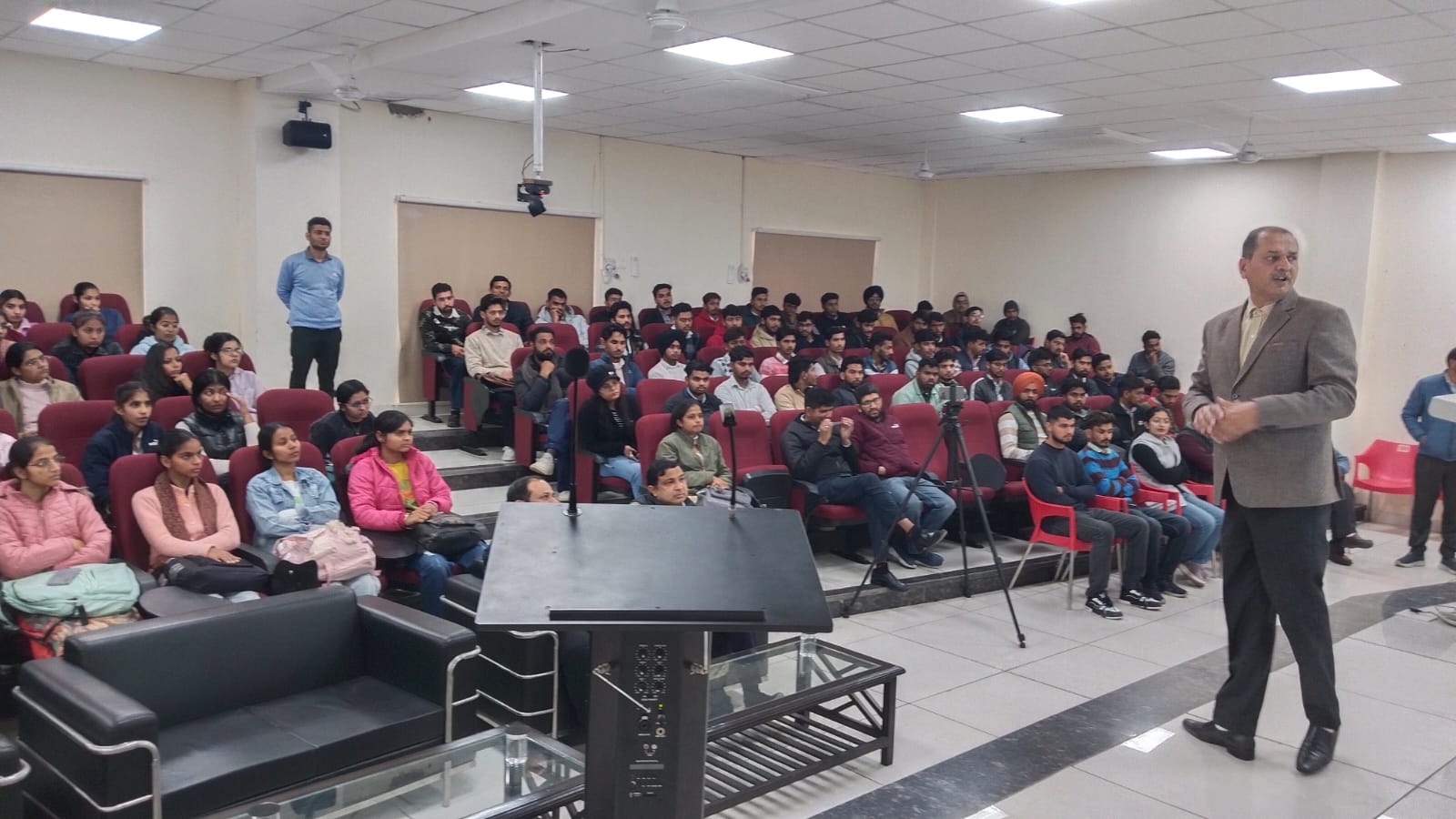Cyber Surakshit Bharat: Understanding Phishing and Its Dangers
(Empowering Digital Safety at CDLU, Sirsa)
On January 31, 2025, Chaudhary Devi Lal University (CDLU), Sirsa, conducted its second cybersecurity awareness session under the Cyber Surakshit Bharat initiative. This session specifically focused on Understanding Phishing and Its Dangers: How Phishing Traps Victims into Cyber Threats, covering critical topics like Digital Arrest, Juice Jacking, Deepfake, and other cybersecurity threats we face in daily life.
Building on the Success of the Previous Session
This was the second session at CDLU, following the first session on November 11, 2024, which provided a broad understanding of cybersecurity fundamentals. The first session focused on digital safety, best practices, and general cyber threats, while the January 31 session took a deeper dive into phishing scams and their impact on individuals and organizations.
A Personal Mission: Giving Back to My Roots
As an alumnus of CDLU, it was a privilege to return and contribute to cybersecurity awareness at my alma mater. With my experience as the Founder & Director of Rozy Computech Services and Consultant-IT for HVPNL, HPGCL, and CDLU, I have been dedicated to enhancing digital security. As a technology expert and speaker on AI, ML, Blockchain, and Data Analytics across 14 states of India, I understand the evolving landscape of cyber threats. Having also served as a Former Assistant Professor at Kurukshetra University and Senior Executive at HSIIDC, I recognize the critical need for cybersecurity education in academic institutions. These sessions are part of my ongoing commitment to giving back to the institutions that shaped my journey and empowering individuals with the knowledge to stay safe in the digital world.
An Interactive and Insightful Discussion
Under the visionary leadership of CDLU's Hon'ble Vice-Chancellor, Prof. Narsi Ram Bishnoi, the university continues its commitment to Cybersecurity Education. The session was hosted by Prof. Mohammad Kashif Kidwai (Director, UCOPE) and Dr. Sunil Kumar (Additional Director, UCOPE) and witnessed the participation of over 100 students and non-teaching staff. The session was highly interactive, with students and faculty members sharing their personal experiences with phishing scams, online fraud, and cyber threats. Participants raised concerns about email scams, fake job offers, banking frauds, and deepfake scams, leading to insightful discussions and real-world case studies.
Key Topics Covered
The session explored key aspects of the Cyber Surakshit Bharat initiative and Digital Arrest, offering actionable insights for securing personal and professional data. Topics included:
What is Phishing? – How cybercriminals trick people into revealing sensitive information.
Recognizing Phishing Attempts – Identifying fake emails, websites, and messages used for scams.
Digital Arrest: Identifying and mitigating vulnerabilities to prevent cybercrimes.
Juice Jacking – The risks of using public charging stations and how hackers exploit them.
Deepfake Threats – How AI-generated videos and images are being used for misinformation and fraud.
Safety Practices: Safeguarding personal information, protecting digital assets, and ensuring secure interactions.
Cyberbullying & Cyberstalking – Recognizing online harassment and the best ways to prevent and report it.
Emerging Challenges: Addressing modern threats such as ransomware, Just-in-Time (JIT) attacks, and digital harassment.
Preventive Measures – Using strong passwords, enabling two-factor authentication, and avoiding suspicious links.
Reporting Cybercrimes – Where and how to report phishing scams and online fraud.
These discussions were designed to empower participants with practical strategies for tackling cybersecurity challenges and enhancing personal and community safety.
A Step Towards a Cyber-Secure Future
The Cyber Surakshit Bharat initiative by the Government of India is a significant step toward equipping individuals with the knowledge to tackle modern cyber threats. This session emphasized the need for proactive digital security measures and responsible online behavior.
CDLU’s ongoing commitment to cybersecurity education has inspired students and faculty to integrate these practices into their daily digital interactions and share their knowledge within their circles.
For me, contributing to this mission goes beyond professional responsibility—it's a way of giving back. Conducting free cybersecurity awareness programs at institutions that played a role in my journey allows me to empower others with essential digital safety skills. Returning to CDLU for this session was a truly rewarding experience, reinforcing my dedication to a Cyber-Secure Bharat. 🚀🔒
Impact and Feedback
The session was highly interactive, with participants openly discussing their concerns about phishing, cyber fraud, and online threats. Many shared real-life experiences and sought guidance on tackling cybercrimes. The practical tips and real-world examples provided valuable insights into staying safe online.
Attendees appreciated the session's relevance and pledged to implement cybersecurity best practices in their daily lives. The overwhelming response highlighted the growing need for digital safety awareness. CDLU’s commitment to cybersecurity education continues to empower students and faculty in creating a safer digital environment.
Acknowledgments
I would like to extend my heartfelt gratitude to Hon'ble Vice-Chancellor Prof. Narsi Ram Bishnoi, and Registrar Dr. Rajesh Kumar Bansal, and all the faculty members at Chaudhary Devi Lal University (CDLU) for their unwavering support and for providing me the opportunity to conduct this important cybersecurity awareness session under the University Centre for Outreach Programs and Extension (UCOPE). Special thanks to Prof. Sushil Kumar (Director, UITDC), Prof. Mohammad Kashif Kidwai (Director, UCOPE) and Dr. Sunil Kumar (Additional Director, UCOPE) for their guidance and collaboration in organizing this event.
I also want to express my appreciation to the DPRO of the university, Dr. Amit Sangwan, and his staff, as well as the press reporters and editors from Press Reporters and Editors of The Tribune, Dainik Jagran, Amar Ujala, Punjab Kesari, Hari Bhumi, and Pal Pal for their coverage and support in raising awareness about cybersecurity issues. Their efforts in disseminating this important information are invaluable. Thank you all for making this event a success!

